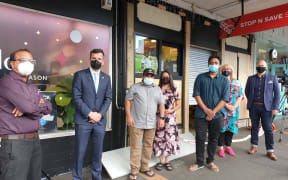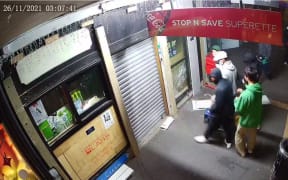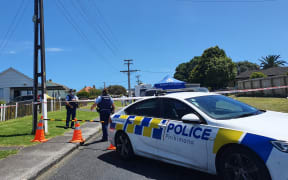Police are accused of letting criminals run rampant in central Auckland and failing business owners, but say they will return to the area with a 'powerful' presence.
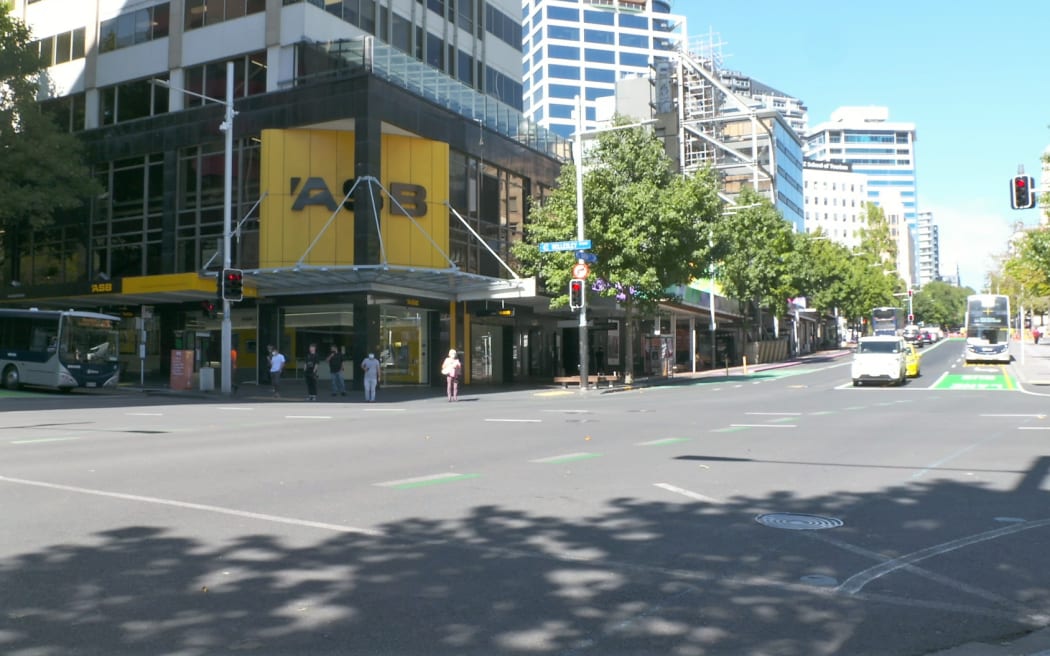
Auckland central's Queen Street, late last month. Photo: RNZ
Data logged by police shows crime surged above pre-pandemic levels in the 12 months until March, with 1971 assaults, 148 aggravated robberies and 1666 thefts from stores - according to a tally of victimisations.
That's roughly the same as the 12 months prior, despite 15 weeks of relatively subdued activity during the most recent lockdown, and it's about 30 percent higher than pre-pandemic levels.
Sunny Kaushal, who heads the Crime Prevention Group and the Dairy and Business Owners Group, said the city centre has become a "crime hub" where offenders have no fear of police.
"They have no fear of law, they have no fear of being caught or the consequences whatsoever," he said.
Nationwide in 2021, arrest rates dropped one percent and the response time for officers to get to a crime scene crept up to an average of one hour and 49 minutes.
Kaushal said central city business owners had lost their faith in police and the judicial system, and many weren't reporting crimes.
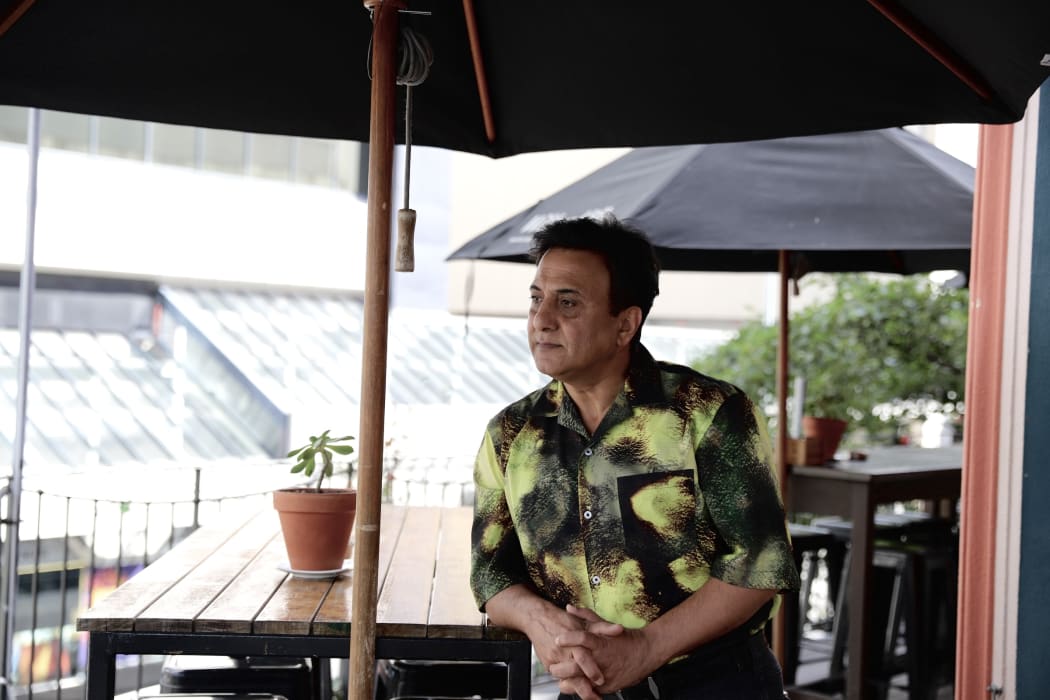
Sunny Kaushal owns a bar in Albert Street, in central Auckland. Photo: RNZ / Marika Khabazi
Among those being targeted in Auckland central are small stores as well as the high end brands, like Gucci and Louis Vuitton which were ram raided on Queen Street yesterday.
Acting area commander for Auckland City, Inspector Grae Anderson, said the city centre had seen a major demographic shift with the departure of tourists and international students, and the arrival of more people in "vulnerable situations".
He admitted there had been some police resourcing "concerns", but said it was an issue of the past.
"It's not unknown that we've had our resources, our people, deployed elsewhere. But with the MIQ situation changing, us no longer having the border controls that we experienced before, we've got our people back, doing the duty they would normally do, and being present."
Inspector Anderson said a lot of the crime in the central city seemed to be alcohol fuelled - and sometimes officers were ending up in the firing line.
"The risk of violence towards our people and police is an ever present concern for me. It's what keeps me awake at night and I know for certain it keeps my district commander awake at night.
"In the past week or so I've had two minor assaults on members of staff and one a little more serious," he said.
Communities Against Alcohol Harm secretary Grant Hewison agreed alcohol seemed to fuel "pretty much all this nuisance, vandalism and crime" occurring in the city centre.
He said Auckland Council doesn't place many regulations on bars and taverns, beyond the national default hours licensed premises can be open.
While fewer police had been present in the central city, he said the pressure was on venues to ramp up their alcohol sales, and make up for money lost during lockdowns.
That had contributed to alcohol harm reaching a 'crisis', he said: "Things have got out of hand and escalated."
Kaushal was keen to see the re-establishment of a downtown police station, as was Antony Phillips from the City Centre Residents Group.
"It doesn't have to be a big police station. We want to see a place where the community can connect with the police in a meaningful and a genuine way," Phillips said.
But Inspector Anderson said money was better spent getting "boots on the ground" than on bricks and mortar, and that police were more easily contacted and readily available than ever before.
"My history and that of my counterparts who've occupied this seat is really focussed on having a truly strong and powerful presence. You can expect to see officers walking in pairs on the high-vis beat on foot and in vehicles," he said.
"We've always been there. We've had other high-priority events that have taken us away to deal with those matters. But the moment they get freed up from those jobs they get out there and focussed on prevention activity."
Kaushal hoped there'd be a tangible change soon, noting tourists would soon be arriving in the City of Sails.
"Is this what the tourists would like to see?
"Is this the first image of New Zealand you're going to show people? Is this a 100 percent clean and green country we're talking about?"


